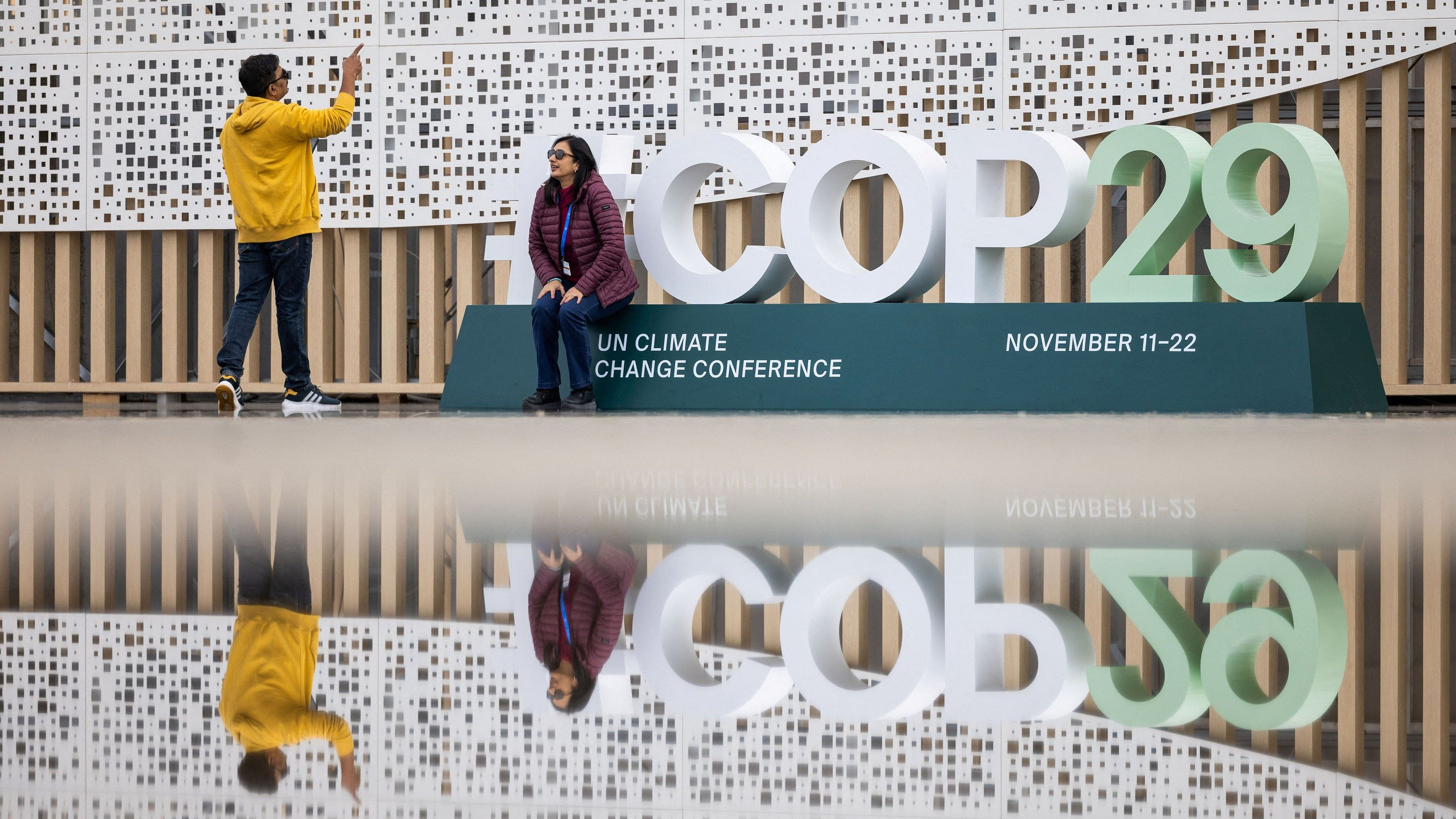
File Photo of the entrance to the venue of the United Nations climate change conference, known as COP29.
Credit: Reuters Photo
The UNFCCC’s Conference of Parties (COP29) on climate change has started in Baku, Azerbaijan, amidst challenges and threats but also with hopes of making headway on programmes to reduce carbon emissions and on climate financing plans. The meeting, with representation and participation from 198 national delegations and thousands of climate activists, opened against the backdrop of Donald Trump’s return as the President of the United States. The US President-elect is a climate change denier and, in his first term, took the US out of international agreements on climate change, including the Paris Convention. The US is the world’s biggest emitter and, being the richest country, is expected to bear the highest responsibility for climate financing. But there is uncertainty about the US role now. There have also been doubts about the commitment of rich countries and oil-producing nations, including the host country, to the goals of the conference.
The meeting opened with a warning from the UN that the Paris climate agreement’s goals “are in great peril” and 2024 is on track to break new temperature records. Climate finance is the main theme of the meeting and will be the most contentious topic. The global agreement which provided for an annual $100 billion funding to developing countries by 2020 for mitigation and adaptation efforts has not been fully implemented. The needs of the Global South have increased. A report, supported by the UN, has estimated that emerging countries, excluding China, need investments of over $2 trillion annually by 2030 if the world is to halt global warming. Of this, $1 trillion has to come from rich countries, investors and development banks, and the rest should be raised by countries domestically. The Baku meeting is expected to address this crucial issue, help set up a new financial target, and evolve a new funding mechanism.
The principle of equal but differentiated responsibility which requires developed countries to make a greater contribution to fight climate change is not adhered to in practice. Developed countries want China and India also to make contributions, though their per capita emissions are much less than those of the developed world. Ideas like developing carbon markets which are a means to raise funds are being discussed at the meeting. Countries will also have to individually reduce their emissions and reset global goals by cutting down on fossil fuel use and increasing the use of renewable energy. They are likely to announce their first revised nationally determined contributions (NDCs) since the Paris Agreement. India has done better on its Paris Agreement commitments than many other countries but will have a low-key presence and participation at the meet.